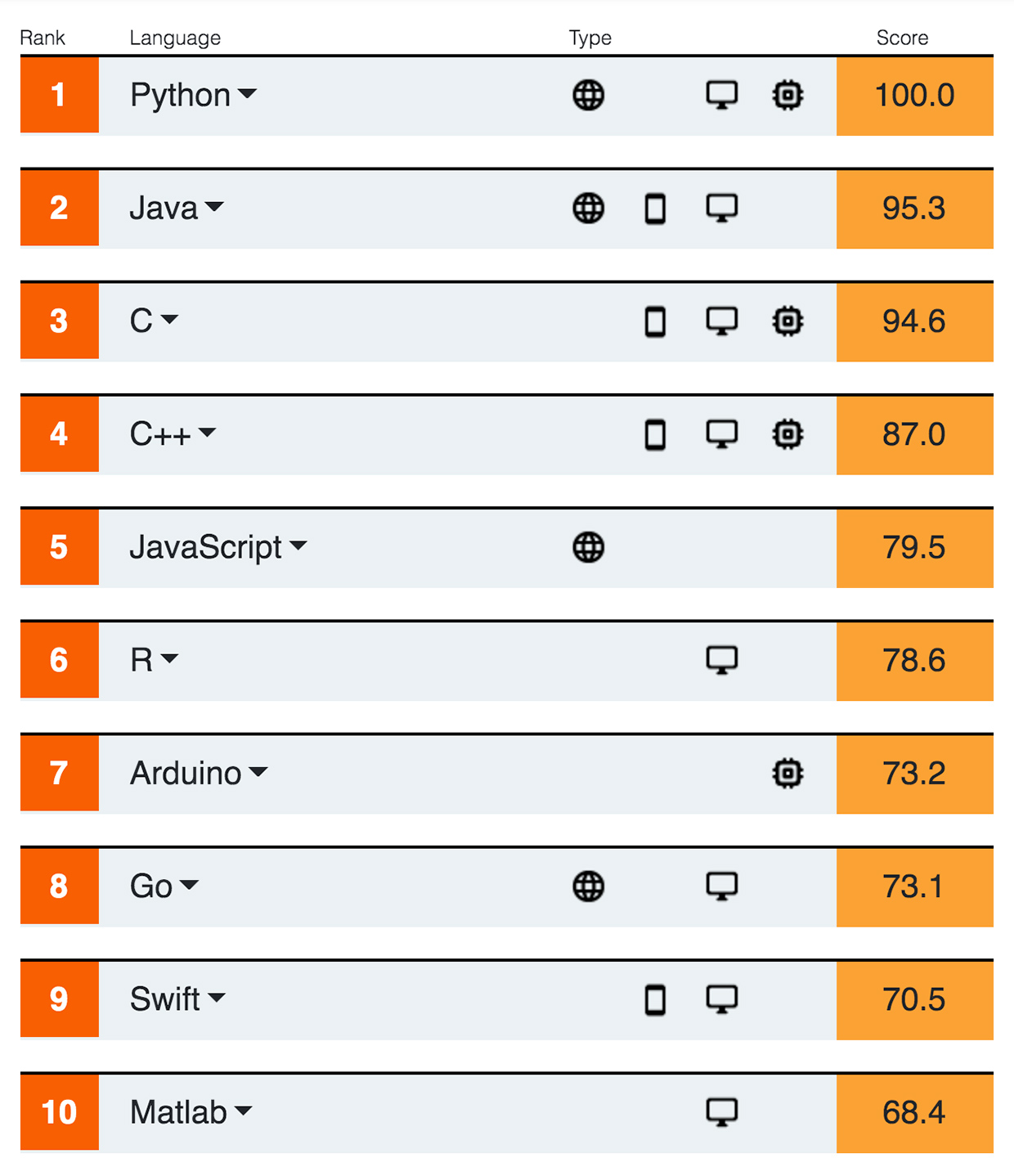The once-declining C language has completed a comeback in the monthly Tiobe Index of language popularity, winning the 2017 Programming Language of the Year designation from Tiobe as the biggest gainer in share.
Although the language only grew 1.69 percentage points in its rating year over year in the January index, that was enough beat out runners-up Python (1.21 percent gain) and Erlang (0.98 percent gain). Just five months ago, C was at its lowest-ever rating, at 6.477 percent; this month, its rating is 11.07 percent, once again putting it in second place behind Java (14.215 percent)—although Java dropped 3.05 percent compared to January 2017. C’s revival is possibly being fueled by its popularity in manufacturing and industry, including the automotive market, Tiobe believes.
The Tiobe Programming Language of the Year for 2016 was Google’s Go language (Golang). Tiobe, which provides software quality services, bases its rankings on a formula assessing searches on languages in popular search engines such as Google, Bing, and Wikipedia.
Other languages that saw jumps in 2017 included R, which rose from 16th to 8th place; Kotlin, which jumped to 39th place after being in 89th a year earlier, and Erlang, which placed 23rd after being in 44th place a year ago.
But promising languages such as Julia, Hack, Rust, and Kotlin were not able to reach the top 20 or even the top 30, Tiobe pointed out. “Becoming part of the top 10 or even the top 20 requires a large ecosystem of communities and evangelists including conferences,” said Paul Jansen, Tiobe managing director and compiler of the index. “This is not something that can be developed in one year’s time.”
The top-rated languages in the index this month were as follows:
Java (14.215 percent)
C (11.037 percent)
C++ (5.603 percent)
Python (4.678 percent)
C# (3.754 percent)
JavaScript (3.465 percent)
Visual Basic .Net (3.261 percent)
R (2.549 percent)
PHP (2.532 percent)
Perl (2.419 percent)
Source: C language completes comeback in programming popularity | InfoWorld
